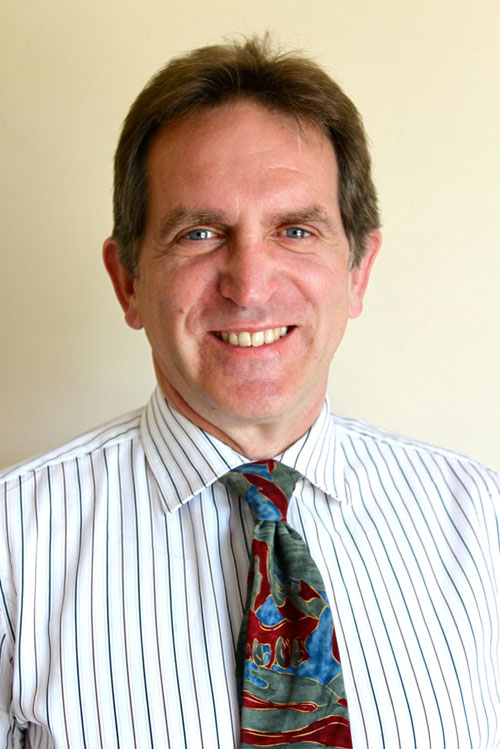Keeping our children safe
Social workers have seen a surge in caseloads since the Baby Peter scandal. Frank le Duc reports

The number of calls to social workers in Brighton and Hove is between 700 and 800 in an average month. Some months it is higher. The number of children being assessed has come close to one in ten at times. After the Baby Peter scandal in Haringey, London, it is little surprise that the professionals and the public are more careful. But the level of referrals and assessments and interventions in Brighton and Hove appears to be much higher than the national average.
James Dougan, the head of children’s and family services at Brighton and Hove Council, has spoken to councillors about the challenges – professionally and financially – in trying to find the right balance. He was clear about the constraints. Some of these are legal, some are much more practical, such as the turnover in frontline social workers quitting their jobs.
He said: “The social work task, decision-making about the rights of parents and the needs of children is the most onerous of all local government responsibilities. However, it is not the most debated within the council and when it is discussed in wider society it is usually accompanied with sensationalised newspaper headlines.
“Intervening in the lives of families with complicated emotions, aggressive or deceitful behaviour, and an absence of reasonable expectations of the norm, is inherently stressful for social workers and other professionals to a degree unimaginable to most outsiders to the process.
“Currently, in England it is accepted that all parents are allowed to bring up their children in their own way until they demonstrably fail. The likelihood is that this freedom will permit some parents to be reckless or wilful as to their children’s safety. In this context, the state intervention – ie, local authority, police, health – will from time to time be too late, too indecisive, too prone to optimism.
“There is evidence that no other ‘fail safe’ option – promoting wider, earlier, less intervention – would be acceptable to society, and specifically the courts. It is the courts, not social workers, that decide to take children into care, and the test remains one of the alternative being the risk of significant harm to the child.
UNKEEPABLE PROMISES
“Political promises that exhort that ‘such deaths (or severe traumas) must never happen again’ are irresponsible and serve to obscure a more fundamental debate about the fundamental rights of children and parents within England and within resources available.
“Good social workers making good judgments in good systems can still not be enough to prevent some parents harming or killing their children. Neither would a more interventionist system necessarily serve children’s interests.”
Mr Dougan, who has a quiet, understated and reassuring manner, added: “All children and their families who require a service from social work are referred to this referral point or refer themselves to this point. Contact with the team can be made through the main telephone number, in writing, email or in person at The Hub.” The number is 01273 295920.
He said: “The team receives between 700 and 800 contacts about children and their families each month, that is about 4.5 calls every working hour through the month. Calls can be in writing, via an email or by telephone. The police send reports of all incidents where children have been present or involved. This service was redesigned in 2011 and was judged to have good capacity to improve by Ofsted in its most recent inspection [December 2011].”
Sometimes advice is given. In cases that look more serious, an initial assessment is carried out. There were almost 3,100 of these in the year to the end of March. The rate has fallen from 727.6 per 10,000 children in 2010-11 to 660. Mr Dougan said that this remained significantly above the 2010-11 national average of 398.2 per 10,000. The council has a set of “statistical neighbours” – councils where the comparisons are more like with like. Even with our statistical neighbours, the average was considerably lower at 460.8 per 10,000.
Greater concerns prompt a core assessment and 1,744 of these completed in the year to the end of March. The rate of these has also fallen – from 398.7 in 2010-11 to 372 in 2011-12 – but it is still significantly above the 2010-11 national average of 167.8 and the rate of 192.2 for our statistical neighbours.
‘NOT A WICKED CITY’
Mr Dougan said: “Social work activity per child population remains high relative to many south east or statistical neighbour authorities. The last point at which we could compare this we were 10th highest out of 152 authorities. The question raised is why do people and professionals in Brighton and Hove believe that this proportion of children need to be referred to social care? Are there developments that are required to enable other services to help support children? Are expectations for our children too high in the sense that as a city we cannot afford them?
“The commitment of our staff is just phenomenal. Kids who need care will get care”
“Frontline duty teams experience turnover which is usually higher than other teams in the service. This has been exacerbated by the service changes and a number of interesting vacancies in other parts of the service. It has been possible to recruit a mainly newly qualified group but has proved very difficult to attract experienced staff, and in particular much more difficult to recruit to our first line manager posts.”
Mr Dougan’s boss, the outgoing strategic director for people, Terry Parkin, said he had statutory responsibility for 462 children – nationally that’s the tenth highest per 10,000. Mr Parkin said: “The saddest thing is we don’t know why. This isn’t a wicked, evil city.
“We forget at our peril that even the poorest parents love their children passionately. They just don’t know what to do about it. We’re dealing with troubled families with multiple problems and a huge number of challenges – parents who have no job, drug or drink problems, or mental health problems, and no one’s getting the child up for school.

A PARENT’S JOB
“A parent’s job is to keep their children safe. Our job is to backstop them on behalf of society. Some face neglect. For whatever reason the adults think their lives are more important than their children. Some face domestic violence – this mostly affects women and children. And then there’s drugs and alcohol. Four fifths of referrals have drugs or alcohol as a causative issue.
“What frightens me is just how much crap there has to be in someone’s life before we intervene. We make sure all our team know the threshold so when we get a call from a professional we know it’s likely to be above the threshold. But we have social workers attacked. We’ve had cars firebombed. We’ve had paint thrown over cars. We do regular risk assessments.
“When I came here we had three area teams for child protection with three different sets of standards for referral and assessment. Now there’s only one. We now have one front door, one team and a single set of standards.” He said that the integrated team included social workers, youth workers, health workers, police officers, adult mental health workers.
As part of the reorganisation, Mr Parkin and his team were looking at ways to manage more efficiently and effectively the 600 or so families that take up most time. At about the same time, the government announced its “troubled families” project. This will help pay for the extra help that, it is hoped, will reduce the long-term costs associated with troubled families – from petty vandalism and anti-social behaviour in school and the community to the descent into crime.
Mr Parkin said: “The troubled families initiative gives us more opportunity to get involved early. In terms of outcomes – when children are two or three [years old] we can make a profound difference. At 13 or 14 we can’t make as much of a difference. We’ve got to invest at the bottom of the system while trying to manage the really big numbers of looked after children.
THE COST OF CARE
Costs are under pressure – as they are across the public sector – so Mr Parkin and Mr Dougan have overhauled the commissioning of services from outside providers. Mr Parkin said: “We’ve taken £4 million out of the costs by setting out a spec and asking for a price. We have almost 50 providers. We’ve got very sophisticated providers. Every placement is bespoke.
“Costs are under control. A lot of that work started before I got here. We’ve had some very major reorganisations to improve provision and outcomes. There’s a greater clarity about what’s expected at every level. Part of the aim of reorganisation is to prevent the need for children having to come into contact with social services. Get the plan right at the early stages and we can manage the demand.”
He said that the staff were still asking themselves key questions about, for example, how long children are looked after by the council. He said: “Other places are better at getting them back out again. We have to ask ourselves, do we keep them for too long? And how do we help them get back out again?”
Mr Parkin has brought some of his skills as a former Ofsted inspector to the job, and a rigorous approach to benchmarking and raising standards. He said: “We are targeting individual families with individual programmes. Part of my job is to tell people what we want and then do everything in our power to help them meet that. The commitment of our staff in these areas is just phenomenal. Kids who need care will get care.” n





















